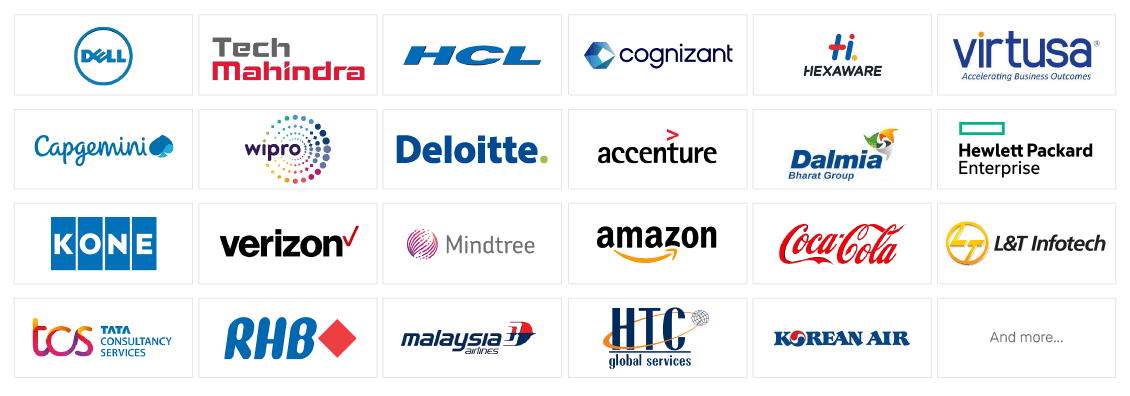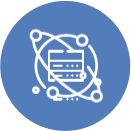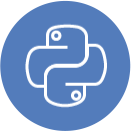Our Alumni Work At

"AI to contribute $16.1 trillion to the global economy by 2030. With 133 million more engaging, less repetitive jobs AI to change the workforce." - (Source). Data Science with Artificial Intelligence (AI) is a revolution in the business industry.. AI is potentially being adopted in automating many jobs leading to higher productivity, less cost, and extensible solutions. It is reported by PWC in a publication that about 50% of human jobs will be taken away by the AI in the next 5 years.
There is already a huge demand for AI specialists and this demand will be exponentially growing in the future. In the past few years, careers in AI have boosted concerning the demands of industries that are digitally transformed. The report of 2018 states that the requirements for AI skills have drastically doubled in the last three years, with job openings in the domain up to 119%.
FAQs for Data Analytics Course in Hyderabad
360DigiTMG offers a comprehensive Data Analytics Certification in Hyderabad, providing in-depth training on data analysis techniques and predictive modeling. This course is suitable for professionals seeking to enhance their skills and apply data analytics in various industries.
To join the best institute for data analytics in Hyderabad, candidates must have a Bachelor's degree in Mathematics, Statistics, Computer Science, Data Science, or any engineering discipline. This ensures the foundational knowledge necessary for advanced topics in Data Analytics.
The best institute for data analyst course in Hyderabad offers a comprehensive four-month course that includes 132+ hours of theoretical sessions, 80+ hours of practical assignments, and 80+ hours of live project work, ensuring a thorough learning experience.
A leading data analyst course in Hyderabad is designed to teach skills such as mastering various data generation sources, applying text mining techniques, predictive analytics, machine learning for business decisions, and data visualization to present actionable insights.
The curriculum of this course includes the following subjects:
- Data Preparation
- Data Cleansing
- Exploratory Data Analysis
- Feature Engineering
- Feature Extraction
- Feature Selection
- Hypthesis Testing
- Regression Analysis
- Predictive Modelling
- Data Mining Supervised
- Data Mining Unsupervised
- Text Mining
- Natural Language Processing
- Machine Learning
- Black Box Techniques - Neural Networks, SVM
- Time Series Analysis / Forecasting
- Project Management
The most obvious benefit of pursuing a Data Analytics Course is that one can apply to a plethora of job opportunities available in the data science market. The demand for data science professionals in India it has increased by 400% and the supply has increased by 19% only. This is the most sought after qualification. It is also the most lucrative career option with salaries hitting the ceiling.
Another benefit would be the range of analytical and problem-solving skills that a student acquires from a data analytics course. These skills can be used to analyse big data and draw meaningful insights from the same.
The third benefit is that you exhibit better business decision-making skills in the workplace.
Data Analytics is useful for Chartered Accountants. Chartered accountants can use big data analytics and machine learning to re-engineer the audit process. Network Analytics and Graph Data are used to identify fraudulent practices. The tools of data analytics can be used to detect business risks as well.
360DigiTMG offers a Data Science Course for Internal Auditors and a Certification Program in Financial Analytics. Chartered Accountants can pursue either one of these courses to develop cutting-edge analytical skills.
Data Analytics is widely used in the Financial Services industry today. Finance professionals can benefit from a data analytics course. They will understand how data analytics is employed in Stock Market Investments, Banking, Financial Advisory and Management, EPS etc. The application of Artificial Intelligence in Algorithmic Stock Trading, Automated Robo- Advisors and Fraud Detection Systems are also elaborated in-depth in a financial analytics course.
360DigiTMG offers a very comprehensive Certification Program in HR Analytics for HR professionals. The module includes
- Enabling Workforce Analytics
- Predictive Modelling for Ethnic Diversity
- Machine Learning to predict Employee Turnover
- NLP techniques to screen and recruit candidates
- Predicting Employee Performance
- Predictive Modelling of sickness/ absence
- Deep Learning for Emotion Mining in Workforce Analytics
The course material will be accessible through our online Learning Management System (AISPRY). You will have the convenience of downloading the relevant content from this platform. AISPRY serves as a centralized hub for course resources, enabling easy and efficient access to materials. This online delivery method ensures that you can retrieve, review, and engage with the course content at your own pace, providing a flexible and accessible learning experience.
Yes, our data analytics course incorporates data visualization, specifically using Tableau. Participants develop expertise in visually representing and interpreting data, improving insight communication. The focus on Tableau empowers students to create impactful visualizations, cultivating practical skills in visual analytics. This ensures participants acquire the ability to convey complex data effectively through compelling visuals, a vital competence in data analytics.
Upon course enrollment, each student is promptly assigned a mentor for personalized guidance. If additional assistance is deemed necessary, the institute assigns extra mentors to ensure comprehensive support. This tailored mentorship approach creates a supportive learning environment, ensuring that students receive the guidance required to excel in their studies.
Certainly! We regularly host free data analytics webinars on YouTube. You can access these insightful sessions by visiting our YouTube channel at the following link: 360DigiTMG - Awards & Accolades (youtube.com). These webinars provide valuable insights and updates in the field of data analytics, offering a convenient and accessible platform for learning and staying informed. Feel free to explore the diverse range of topics covered in our webinars.
https://www.youtube.com/channel/UCNGIDQ466bNY87eEeKeQuzAYes, The certificate incurs an additional cost, separate from the course fee. The pricing structure ensures transparency, with participants paying specifically for the certification. This approach allows flexibility for those seeking accreditation, ensuring that the certificate cost is distinct from the base course fee, providing clarity and choice for individuals pursuing certification in addition to the learning program.
In the event of missing a data analytics classroom session, there's no need to worry. All sessions are meticulously recorded and stored in our Learning Management System, AISPRY. This ensures that participants have convenient access to the recorded session, allowing them to catch up on missed content at their own pace. The availability of recorded sessions enhances flexibility, enabling learners to stay on track with the course material despite scheduling conflicts or unforeseen circumstances.
Once a student completes his course and receives the Course Completion Certificate, he is eligible for an internship. We offer an internship with AiSPRY. The students gets involved in a live project with AiSPRY. At the end of his internship, he will receive an Internship Certificate in recognition of his efforts.
A fresh graduate will greatly benefit from the internship opportunity with AiSPRY that our institute offers. He will work on a live project and get hands-on experience of implementing a Data Analytics solution. This will improve his employability immensely. Most employers value live project experience only.
You can apply for the following jobs after completing the course:
- Data Analyst
- Data Scientist
- Data Engineer
- Data Architect
- Business Analyst
A Data Analyst deals with Data Cleansing, Exploratory Data Analysis and Data Visualisation, among other functions. The analyst's job is to sift through historical data to understand the present state of the business.
A Data Scientist builds algorithms to solve business problems using statistical tools such as Python, R, SAS, STATA, Matlab, Minitab, KNIME, Weka etc. He also performs predictive modelling to facilitate proactive decision-making. Machine learning algorithms are used to build predictive models using Regression Analysis and a Data Scientist must develop expertise in Neural Networks and Feature Engineering.
A Data Engineer is essentially a programmer in Spark, Python and R and complements the role of a data scientist.
A Data Architect is entrusted with the task of establishing hardware and software infrastructure needed to perform Data Analysis. They have to select Hard Disk, Network Architecture, Databases, GPUs etc.
We offer end to end job assistance to our students. We assist them in resume preparation and conduct several rounds of mock interviews. We circulate their resumes to reputed placement consultants with whom we have a long-standing agreement. Once placed we offer technical assistance for the first project on the job.
Business Analytics is the emerging field in data science. It is definitely worth pursuing a data analytics course after your MBA. You can specialize in Financial Analytics, HR Analytics or Supply Chain Analytics. Once you finish your data analytics course you can apply for the position of Business Analyst.

Field of Data Analyst Jobs in Hyderabad
There are around 97000 vacant positions in data analytics in India. The opportunities for fresher account for 21 percent of Data Analytics jobs in India. Employers are companies like Tech Mahindra, TCS, Genpact, Wipro, and HCL Infosystems.

Salaries for Data Analyst in Hyderabad
The average salary of a Data Analyst in India is Rs.5 lacs per annum. A fresher can earn anywhere between Rs.1.62 to Rs.3.23 lacs, a junior analyst gets around Rs.4,51,000 per annum while a Senior Data analyst earns Rs.7,74,000 per annum.

Projects for Data Analytics in Hyderabad
The Indian government has initiated several Data Analytics projects in the fields of Agriculture, Electricity, Water, HealthCare, Education, Road Traffic Safety and Air Pollution.

Role Of Open Source Tools In Data Analytics
Python is easy to learn and maintain and therefore a Godsend to developers in Data Analytics. Its extended library makes it possible to stretch the applications of Python from Big Data Analytics to Machine Learning. R is the preferred tool of statisticians that enables effective data storage.

Modes of Training for Data Analytics
The course in Hyderabad is designed to suit the needs of students as well as working professionals. We at 360DigiTMG give our students the option of both classroom and online learning. We also support e-learning as part of our curriculum.

Industry Applications of Data Analytics
Data Analytics is used for securities fraud early warning, card fraud detection systems, demand enterprise risk management, analysis of healthcare information, seismic interpretation, reservoir characterization, energy exploration, traffic control and route planning.
Talk to your program advisors today!
Get your profile reviewed
360DigiTMG – Data Analytics, Data Science Course Training Hyderabad
Data Analytics Training in Hyderabad, Data Analyst Course Near Me, Data Analyst Certification, Data Analytics in Madhapur, Data Analyst in Gachibowli, Data Analytics in Kukatpally, Data Analyst Course in Ameerpet, Best Data Analytics Coaching in Hyderabad, Data Analytics Institute in Hyderabad, Data Analyst Institute Near Me, Data Analytics Classes Near Me, Data Scientist Course, Data Analyst Course Fees, Data Analyst Training in Kondapur, Data Analytics Course, Data Analytics Training in Hyderabad.

